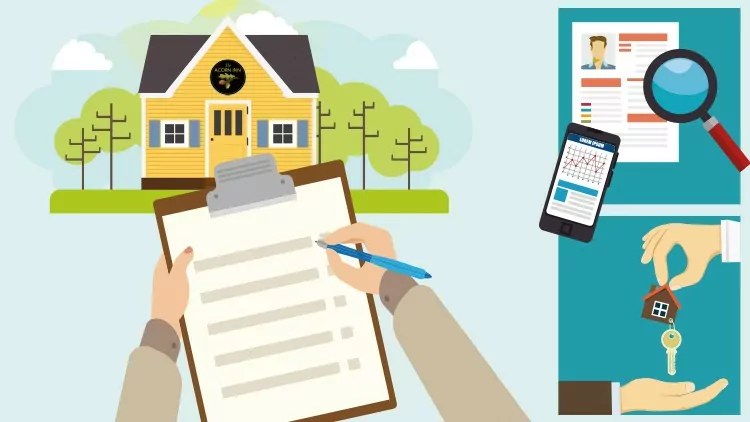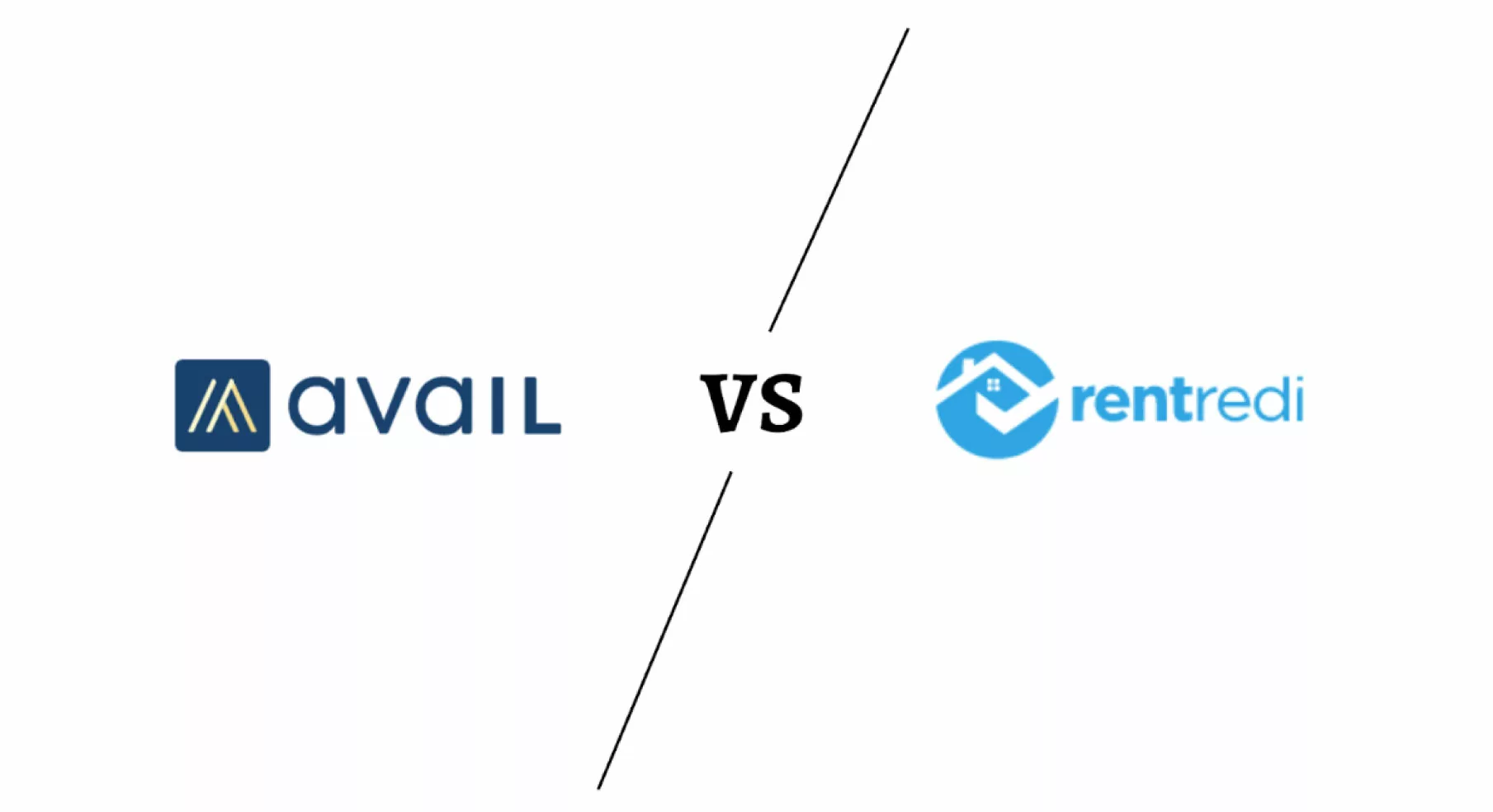Becoming a private landlord is a great choice for anyone who wants to generate a consistent passive income. As more and more people are looking to rent, investing in a rental property seems like the most logical thing to do. But there are other factors to consider and a game to be played—a real estate investor needs to understand the market to ensure profits and avoid losses.
Leasing property isa business that requires good planning, management, and operation practices. With the right strategies and tools, any private landlord can start generating passive income.
Put rent collection on auto-pilot
Get paid on time with automated rent payments, reminders, and late fees.
1. Finding The Right Property: Design a Budget and Do Your Research
Unless you already own a second home or a multi-family home, purchasing a rental property is the first thing you will have to tick off your list to become a private landlord. You may need deep-pockets to buy a condo or a home outright, but there are various other ways to acquire a rental property.
For most future independent landlords, properties are usually acquired through a mortgage. Hiring a financial advisor or experienced mortgage broker to help you weigh your decisions may help, but it’s also equally important to do your research on interest rates of various mortgage lenders. Take the time to identify the best deals and find ways to reduce how much of a down payment you need to buy the property.
Once you’ve got your budget set, it’s time to do, well, even more research. Narrow down the neighborhoods that appeal to your taste and budget then hire a real estate agent to help with your property search.
To find the best neighborhoods, here are some factors you need to consider:
- Safety and crime rate in the neighbourhood
- Average Rental rates for the type of property you are looking to rent out and their trends in the past few years (are rents going up or down?)
- Quality of schools and education
- Access to public transportation
- Access to libraries, parks and entertainment
- Average property value increases (in case you want to sell later)
- Vacancy rates of other rental properties in the area
- Homeowners association fees (if the property is within HOA jurisdiction)
2. Understanding Local Landlord-Tenant Laws
One of the most crucial steps to become an independent landlord is understanding landlord-tenant laws. Familiarize yourself with your state’s landlord-tenant laws to prevent unnecessary litigation or extra paperwork. For instance, California law limits tenants’ deposits to two months rent while in Washington, the law states no such limits. These private landlord requirements differ in every state, so it’s important to review your local laws for landlords and tenants.
3. Determining How Much to Charge for Rent
To set the right rent price, you will need to research the market to learn the fair market rent price in your area while also keeping in mind how this is going to affect your finances. Take note of your rental expenses versus your rental income. Make sure that you’re able to keep up with the expenses while also making a profit.
Without having to hire anyone, a private landlord can use online applications such as Rentometer and a little bit of research to help set rental rates.
4. Having a thorough, well-written lease
As a private landlord, your lease agreement is everything. It will communicate expectations, state what the landlords and tenants can and cannot do and what happens when the agreement is broken. It’s a binding contract that not only protects the private landlord from legal situations, but dictates crucial business details.
Your lease should include basic terms, clauses and language down to the most specific items that need to be addressed such as:
- Lease term, monthly rent amount
- Pet clause.
- What is the specific security deposit?
- Is smoking allowed?
- Where can tenants park and what is the number of allowable cars in the parking area?
- Is subletting allowed? If so, does it need to be pre-approved by the landlord?
- Conditions for adding a cosigner to the lease.
It may be a good idea to have a lawyer review your lease as well. In some states, certain clauses may not be legal and could void your lease agreement.
5. Marketing The Rental Property
To ensure that your rental properties are seen by prospective tenants, a good marketing strategy is vital. You can hire a property manager to do all this for you, but note that property managers usually charge a percentage of your rent. Nothing wrong with a little DIY independent landlord marketing.
There are different avenues where you can easily promote your property and rental listings are usually the way TL go. Websites like Craigslist.com, Zillow.com and Trulia are just some of the few you can try out.
Tip: Take high-quality photos of the interior and exterior of your property and create a rental ad that talks about the beautiful amenities, upgrades and features present in your property.
Building an email list is also viable, especially as you grow your real estate portfolio and reputation as a private landlord. Getting constant inquiries about your properties allows you to collect your prospects’ emails, send updates about your properties and create a follow-up process.
In-person showings and personal selling are some of the things you can do if you enjoy touring and talking to people whilst convincing them that your property is top-notch.
And when all else fails, you can always rely on a good old classic yard sign for advertisement.
6. Evaluating and Screening Tenants
A private landlord should always do a background and credit check before signing the lease agreement. You want to make sure that your tenant is reliable so you don’t encounter future problems involving late payments or damages to the property. Calling previous landlords or having tenants submit a rental application are good ways to ensure that they will be able to cover the cost of rent every month. Ideally, rent should comprise only a third of the tenant’s monthly income.
7. Signing the Lease Agreement
After evaluating all of the above, you’re ready to sign the rental agreement with your would-be tenant. Set a date and time to meet and discuss the lease agreement and answer any questions that may arise. Collect the security deposit and make sure that other rent collection terms are discussed.
Afterwards, you and your tenant can do a property walkthrough where you can discuss the ins and outs of the property. Don’t forget to be transparent and point out any existing wear and tear in the fixtures. It’s also best practice to document the properties condition and take pictures so that you can compare the condition during a move out inspection.
8. Managing the Property
One of the monthly tasks as an independent landlord is collecting rent payment from tenants so it is important to have a system for issuing and collecting payments.
Do you want to hire a property manager, a rent collective service or do it all yourself?
A good alternative is to hand over this tedious monotonous task to an online platform that allows you to collect rent payment, track cash flow and much more.
9. Property Preparation and Maintenance
Before the tenants move in, it goes without saying that the unit should be clean, tidy and fixtures are in good condition. Make sure that the door locks have been changed and that plumbing and electricity are in good working condition.
Take note that your duty as an independent landlord does not stop there. As long as your property exists, your duty to it prevails. As a private landlord, you should perform routine checkups and repair any damage to the property caused by reasonable wear and tear.
When preparing a property for new tenants, it’s good to have a checklist on hand. The below outlines some of the key items to focus on before the handover:
- Entire unit has been cleaned
- Walls have been checked for damage
- Appliances are still in working order (if included)
- Locks have been changed and previous tenants returned keys
- Fixtures are in working order
- Fire alarms are still in working order (if mandatory in your state)
- Pre-move-in pictures have been taken
10. Purchasing Landlord Insurance
Landlord insurance will protect you and your property from potential accidents or liability claims. It’s also easy to buy additional insurance coverage if required so make sure you’re clear on the coverage you need. You wouldn’t want to pay for things you don’t need, would you?
If you’re a first-time landlord, it would be best to work with a reputable insurance broker to get multiple quotes and assess which risks you’re able handle as an independent landlord and which you want your insurer to cover before making a decision.
Additionally, it’s also sound advice to ask the renter to purchase renter’s insurance for their own protection.
Final Thoughts
From finding the best rental property to screening tenants and signing the lease, every step requires effort and attention as an independent landlord. As your portfolio grows and rental income increases, using DIY landlord software can help streamline your processes and reduce manual work.
It is important, from the start, to make sure that the property has the potential to produce a positive cash flow so you should find a property that is within your financial budget, and in good condition to avoid major repairs.
In the end, with the right tips and private landlord tools, leasing a property doesn’t have to be so hard.
Spend less time tracking rent payments
Compare the top 10 apps that make rent collection easier.
FAQs
The landlord-tenant laws differ from state to state covering issues such as:
- Raising rent prices
- Security deposits
- Grace period for late rental payments
- Late fees
- Grounds for eviction
- Whether tenants are allowed to withhold rent until repairs are completed
Like most things these days, you are more likely to find tenants online through rental listings or postings on social media. If you wish, you can also look into the newspaper or connect with people in the community in case they know anyone looking for a rental space. Good old prints also never go out of style. Just don’t forget to mention the key features of your home and of course, a way to reach you when needed.
Unless you’re in a rent-controlled city, landlords can give a 30-day or 60-day notice to evict a tenant without cause. But it would probably be best to avoid doing so unless it’s truly necessary (i.e. you have to move in yourself or help out a relative).
Either the renter pays to repair the damage or the expense is deducted from the tenant's security deposit at the conclusion of the tenancy with both parties' consent. Fair wear and tear should be allowed for.
When assessing applications for your rental property, bad credit, eviction history, and a criminal record are all clear red flags. Bad Credit - Examining your applicants' credit history and debt obligations will help you determine whether or not they will be able to pay their rent on time, every time.
When the renter initially moves in, the landlord shall represent and warrant that the parcel, as well as the electrical, plumbing, heating, and air conditioning equipment, are in good working order. The landlord should be liable for the building's structural components. The heating, ventilation, and air conditioning system, foundation, flooring, walls and columns, roof, and all other systems and structures that are an intrinsic part of the building of which the parcel is a part should all be expected to be maintained by the landlord.
All-in-one rental property management
- Banking, Bookkeeping, Rent Collection & more
- Earn up to 3.35% APY2
- Auto-generated financial and tax reports
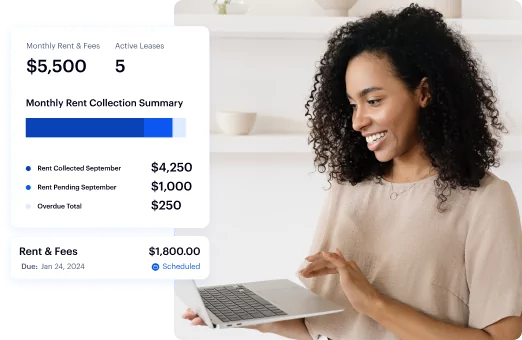
Don't miss these
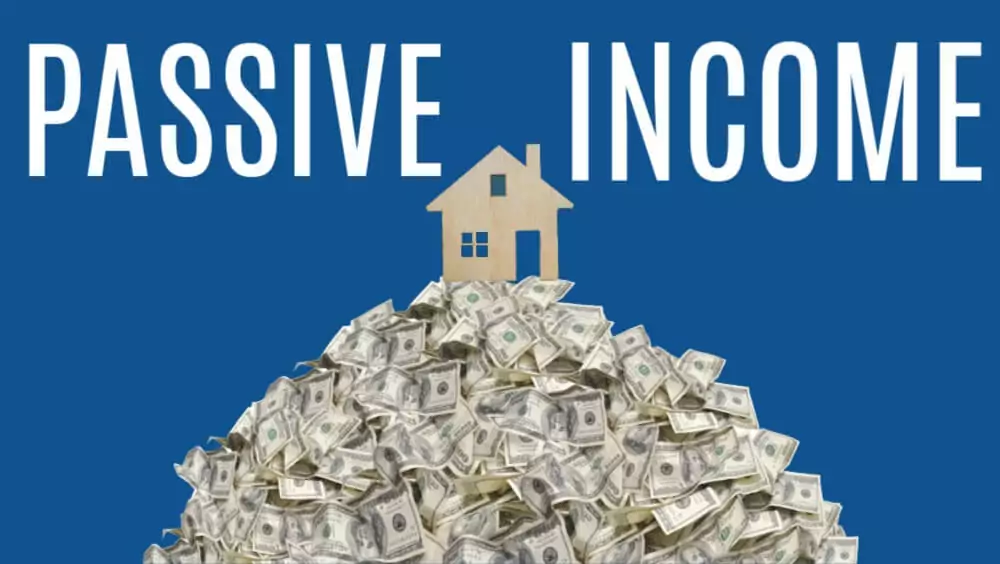
How To Earn Passive Income from Real Estate
Chances are that if you’re reading this article about earning passive income, you have big plans for the future that come with an even bigger price t...
24 November 2021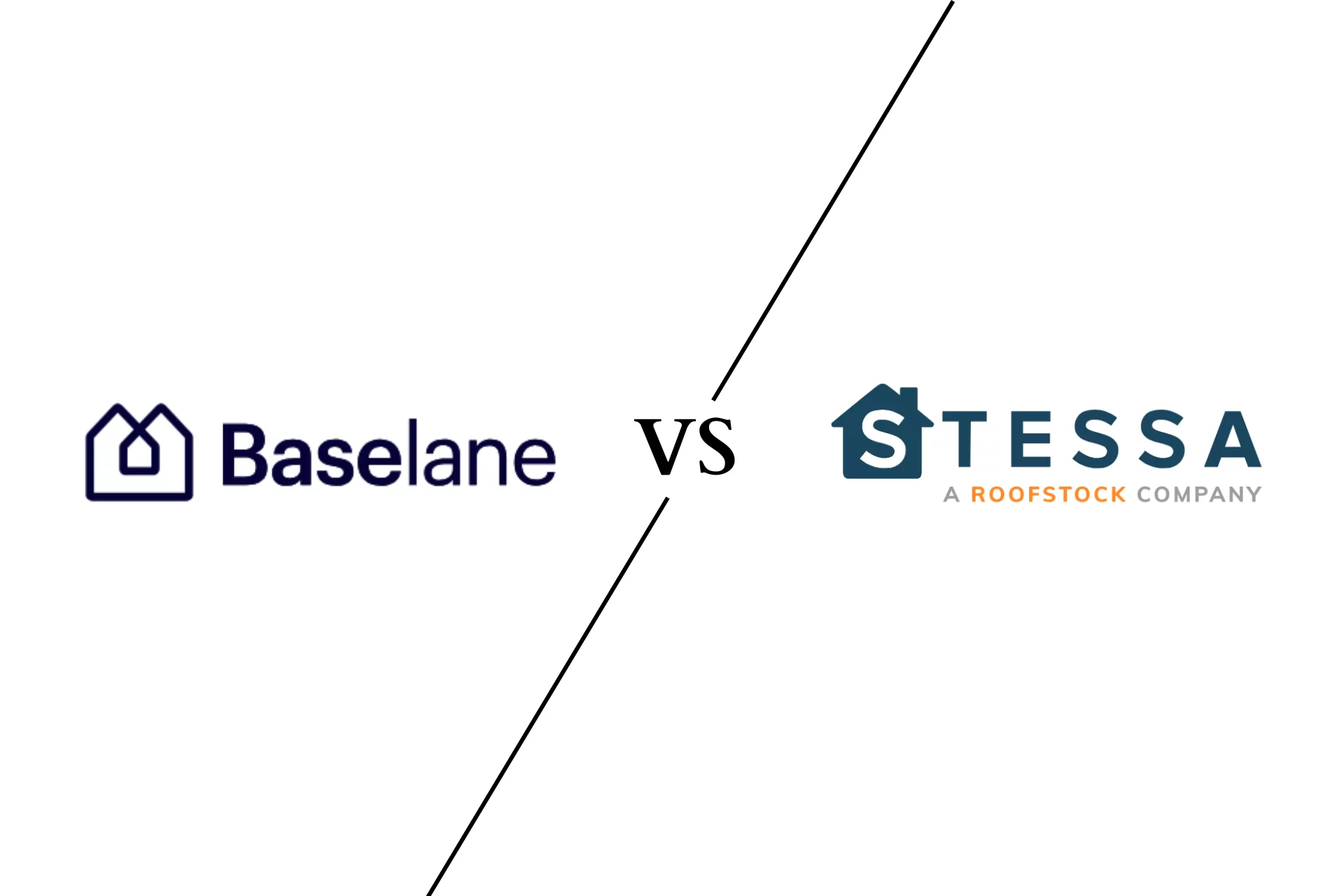
Baselane vs. Stessa: A Comparison of Landlord Software Solutions
Need help choosing the best landlord software for rental property management? In this article, we’ll compare two popular options, Baselane and Stessa...
4 December 2023
How to Add a Cosigner to the Lease Agreement?
Running credit and background checks are essential to reduce the risk of non-payment. However, sometimes requiring a cosigner to a lease is necessary to pr...
14 April 2022
